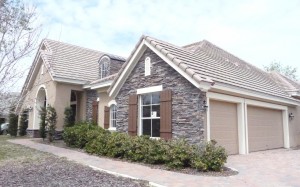Purchasing Lakeland, FL foreclosures can be a wise investment for a number of reasons. If you’re considering buying a foreclosure, you might be doing so for the purpose of fixing it up to sell for a profit, renting it to local residents, or using it as a short-term rental for tourists.
There are some key factors to keep in mind regardless of the scenario.
Flipping for Profit
On the surface, flipping a house seems like the most straightforward, easiest option for making a quick return on your investment. However, depending on who owns the house you’re purchasing, it can be the option with the most regulations and red tape.
Fannie Mae and the Federal Home Loan Mortgage Corporation (Freddie Mac) are among the largest mortgage buyers in the United States. They, along with the Federal Housing Administration, guarantee about 90 percent of all new mortgages today, according to a recent New York Times article.
When it comes to Fannie Mae and Freddie Mac properties, be sure to read the addendum that comes along with purchasing the home. I represented a couple last year who purchased a home owned by Fannie Mae and the addendum stated that if the buyers sold the home within 30 months, it could not sell for more than $180,000.
Guidelines vary among lenders, so when it comes to purchasing and flipping properties, read the addendum first to be sure you know what you’re getting into.
If you see requirements in the addendum you’d like to change, there could be a way around them if you have a knowledgeable real estate agent. Your agent can submit an addendum to get the restriction reduced to 30 days, or even removed altogether.
Traditional Rental Properties
Thanks to the economy and current unemployment levels, there still are great deals to be had on homes in Lakeland that can be fixed up and rented to area residents. If you’re going this route, you should determine how much time you have to devote to your investment.
If you have a home that requires some repairs, are you going to make those yourself, or hire someone to do them? Are you confident in marketing your rental and screening applicants, or do you need a professional’s assistance? Can you handle maintenance tasks and repairs, or will you need a handy man on speed dial? The answers to these questions affect your income potential, so you should know them up front.
You also must consider average rental rates in the neighborhood and whether you can charge a monthly rental amount that will cover all of your expenses, given the home’s location.
Short-term Rental Income
Although this makes up the smallest investing segment in Lakeland, the city is a great location for the short-term rental crowd – typically Canadian and British tourists visiting Florida – because of its close proximity to Orlando and Tampa area attractions. There are investors who purchase homes specifically to cater to the short-term rental tourist demographic because they view this as an opportunity for their investment to pay for itself.
Information you need to know when determining whether to go this route includes:
- Your utilities, property taxes, insurance and mortgage costs.
- Your property’s income potential.
- Your break-even point.
Getting into the short-term rental business can be a challenge if you haven’t educated yourself. A good way to do so on your own in the age of the Internet is to read real estate blogs in areas where investment properties are a booming business.
“People can get in over their heads if they’re not careful,” says Rachel Pinder, a broker who sells investment real estate in the Bahamas, a country that attracts lots of Canadian and British investors. “Investment property is big business in the Bahamas, so we provide a great deal of information about it on our website.”
After gaining a working knowledge of what lies ahead for your investment, locating a local real estate agent who offers property management services might also be a good idea.
Now that you’re armed with some information, here’s hoping your path to investment property ownership is a smooth one.
